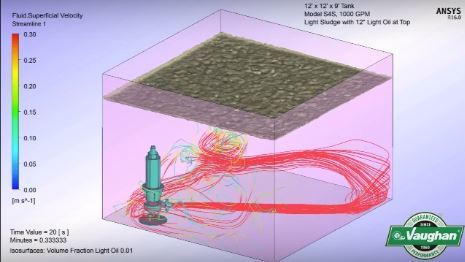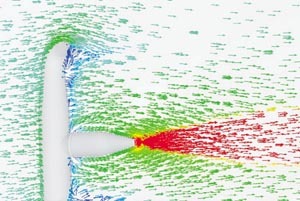To ensure cost-effective and reliable plant operations, treatment plant operators rely on high-performance chopper pumps. In order to accurately measure the quality and efficiency of new chopper pump features, manufacturing engineers employ computational fluid dynamics (CFD). CFD is a vital tool in developing the high-performance chopper pumps used in your treatment plants. This method of analysis ensures that each pump is developed with reliability and unwavering performance in mind.
CFD is a computer simulation program that is capable of analyzing any type of fluid flow. Whether engineers are considering water flowing through pumps and valves, or jet nozzles mixing a tank filled with water or sludge, CFD can provide analytical information that might not otherwise be attainable. These data readings are, in turn, applied to the team’s understanding of chopper pump features and used to develop new improvements for functionality and lasting reliability.
Some manufacturers, such as Vaughan Company in Montesano, Washington, use CFD technology to facilitate prototype testing prior to putting a new pump design into production. This implementation of technology in the design process greatly reduces the production time of new innovations.
Kent Keeran, chief engineer of Vaughan Company, explains, “We will simulate many variations of impellers and volutes to find the optimum combination of chopping features and pump efficiency prior to placing any new design into production.” In other words, CFD allows the engineering team to try new features in the computer simulation before they are implemented in a chopper pump. By using CFD, engineering teams can design centrifugal chopper pumps that rival centrifugal non-clog pumps in efficiency.








